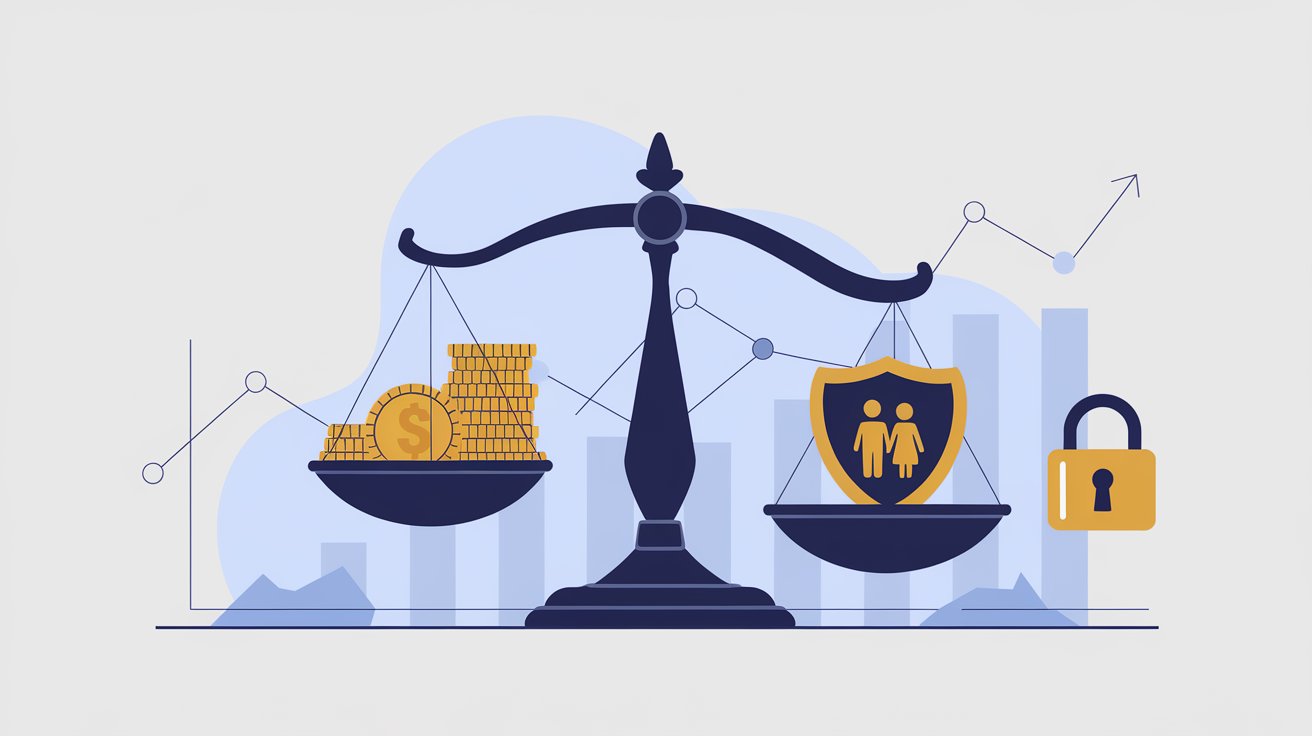Introduction: Building Your Financial Toolbox
Imagine your financial toolbox, where each tool serves a specific purpose: keeping your finances secure. Fixed Deposits (FDs) are like a robust tool that safely stores your money and allows it to consistently grow for short-term savings goals.
On the other hand, Life Insurance is like a multi-purpose tool. It protects your loved ones during unforeseen circumstances while potentially providing long-term saving benefits. Both FDs and Life Insurance are valuable tools. However, they play different roles in creating a secure financial future, offering you diverse options.
Fixed Deposit vs Life Insurance: A Detailed Comparison
Fixed Deposit (FD): Your Money’s Safe Haven
Think of a Fixed Deposit like a piggy bank that grows your money. You deposit a specific amount for a fixed time, and the bank promises to return more money to you. It’s like telling your money, “Stay here and grow!” FDs are excellent for short-term savings and secure investment methods.
Life Insurance: A Financial Safety Net
Life Insurance works like a safety net for your family. If something happens to you, the insurance company helps your family manage finances without your income. Some life insurance plans, similar to long-term piggy banks, also help you save money over time.
While FDs are about growing your savings, life insurance primarily ensures financial security for your family.
Comparative Analysis: Fixed Deposit vs Life Insurance
Key Differences at a Glance
| Aspect | Fixed Deposit (FD) | Life Insurance |
|---|---|---|
| Time Period | Can choose between one week to 10 years | Typically long-term, 10, 20, or more years |
| Minimum Investment | Can start from ₹1,000 in most banks | Varies based on policy and insurance company |
| Returns | Bank tells you exactly how much extra money you’ll earn | Some policies offer guaranteed returns, others provide bonus based on company performance |
| Accessing Funds | Usually can withdraw early, but may get lower interest | Many policies have a lock-in period (often 3-5 years) before withdrawal |
| Tax Benefits | Only specific 5-year FDs provide tax benefits under Section 80C | Most policies offer tax benefits under Section 80C for premium payments, with received money often tax-free under Section 10(10D) |
Types of Fixed Deposits and Life Insurance
Fixed Deposit Types:
- Regular FD: Most common type where you deposit money for a fixed period at a predetermined interest rate
- Tax-Saving FD: A 5-year FD providing tax benefits under Section 80C
- Senior Citizen FD: Offers higher interest rates for people above 60
- Flexi FD: Allows partial withdrawal of your deposit when needed
Life Insurance Types:
- Term Insurance: Pure protection plan that pays only if death occurs during policy period
- Endowment Plans: Offer both insurance coverage and savings benefits
- Unit Linked Insurance Plans (ULIPs): Combine insurance with market-linked investments
- Whole Life Insurance: Provides coverage for your entire life, not just a specific term
- Money Back Policy: Provides regular payments during policy period along with insurance coverage
Choosing Between FD and Life Insurance: Which is Better?
Deciding between FD and Life Insurance isn’t about choosing a “better” option – it’s about understanding your needs. Here’s an easy way to think about it:
Choose FD If:
- You want to save money for short-term goals (like buying a car in 2-3 years)
- You prefer guaranteed returns and don’t want to take risks
- You want easy access to your money
Choose Life Insurance If:
- You want to financially secure your family if something happens to you
- You’re looking for long-term savings with tax benefits
- You’re committed to making regular payments over many years
Remember, it’s not always an either/or situation. Many people use both FDs and Life Insurance as part of their overall financial plan. FDs can be excellent for short-term savings and emergency funds, while life insurance provides long-term security and sometimes additional savings.
Conclusion: Balancing Your Financial Strategy
Fixed Deposits and Life Insurance both have their place in an excellent financial plan. FDs provide security and guaranteed returns for short to medium-term goals, while Life Insurance offers crucial financial protection for your family and potential long-term savings.
The best option depends on your financial goals, risk tolerance, and life stage. A combination of both can often help create a balanced approach to your financial health.
